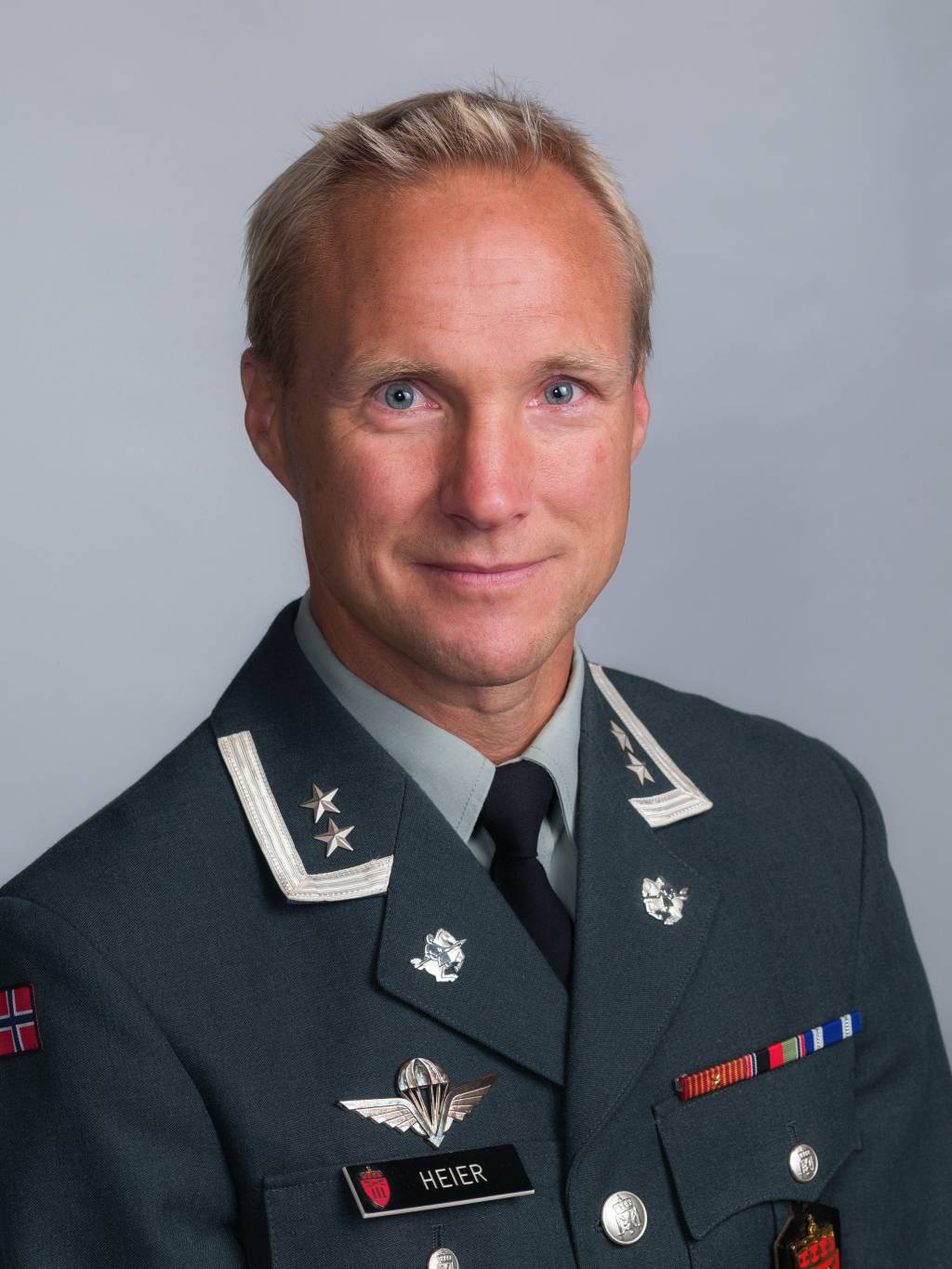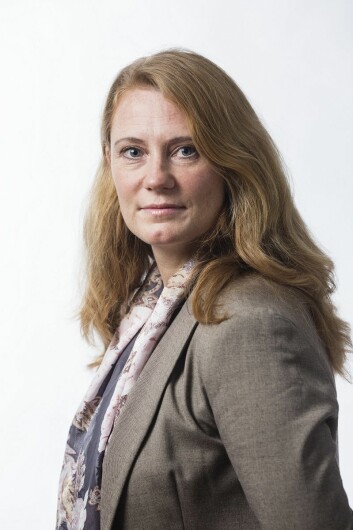(THIS ARTICLE IS MACHINE TRANSLATED by Google from Norwegian)
The world is dominated by unpredictability, tensions and conflicts between the United States, China and Russia. One of Norway's leading voices in the defense debate, lieutenant colonel and researcher at the Norwegian Defense College, Tormod Heier, points to the dilemmas a more assertive EU faces:
"If the EU wants to take the lead in promoting a liberal world order, a difficult dilemma will also arise: Should the EU stand with its back straight and promote democracy, human rights and the rule of law in the face of authoritarian rivals from China and Russia? Or should the EU rather promote a pragmatic multilateralism, since the EU is better served by the great powers of the United States, China and Russia coming to an agreement? Because if the EU is burdened with its liberal heritage, the world will probably become more polarized. Thus, the multilateral system of which the EU is a part will also risk being paralyzed. But on the other hand: if this pragmatism is echoed in Brussels, the EU's fundamental values, such as freedom of expression and respect for the rule of law, will also be weakened. Thus, the very foundations of the European Community may be eroding. Not because of pressure from the authoritarian rivals in the east, but because the union is rotting from within. "
"It is not without reason that Ukraine means 'border country' in Slavic."
Tormod Heier
Heier believes the EU should prioritize its foreign and security policy: "Such prioritization can, for example, start by going back to the roots of why the EU's predecessor – the European Coal and Steel Community from 1952 – saw the light of day. Because it was a point in itself to link former enemies together: West Germany, Italy, France and the Be-Ne-Lux countries. This logic revolves around creating peace in Europe. And it is as relevant today as it was after the Second World War.”

So why not use Ukraine as a laboratory for a more inclusive pan-European community, asks Heier: "A trade political bridgehead between Russia and the EU and a demilitarized peace project where the EU gives Ukraine a strategic bridge-building role. Because it is not without reason that Ukraine means 'borderland' in Slavic – the country has for centuries been under the Habsburg Empire in the west and the Russian Tsarist Empire in the east." (the statement before the invasion. ed. note)
This is where the EU faces one of its biggest threats, according to Heier: "An increasingly authoritarian and isolated Russia – a nuclear power that fears American forces close to its own borders. But who nevertheless want closer economic cooperation with their cousin in the west. It is in this borderland that the key to European stability and integration lies. If the EU wants to, they can build on the merits from the awarding of the Nobel Peace Prize in 2012: to become a promoter of low tension between East and West, in a border country where only goods, services, people and capital are to be exchanged. And where military forces and alliance membership are regulated more strictly than is usual further east and west on the continent."
European strategic autonomy
Conflict and international law researcher Cecilie Hellestveit from the Norwegian Institute of Human Rights (NAIL) and the Norwegian Institution for Human Rights (NIL) are concerned with geopolitical uncertainty, instability and a new world order:
"The Council of Europe and the EU are both designed to stand up to dangers that we know from European history. Many of the challenges facing Europe now come from outside, and Europe must arm itself with decision-making mechanisms and tools that can protect against external forces. Council of Europe is in a demanding situation because it is very broad – such as Turkey, Russia and the Caucasus – and has less authority over member states compared to the EU.

For the EU, the challenge is that geopolitical rivalry and hybrid instruments touch the core of the Union's original areas of cooperation – economic, financial and industrial structures. External state actors, such as China, Russia and the USA, are increasingly interfering through state-supported ownership structures, influence operations or extraterritorial jurisdiction. These challenge the EU's autonomy and legitimacy as a political and economic entity. If the EU is unable to protect its core activities – economic activity – the Union's legitimacy will hardly stand. The EU needs a greater degree of political integration in order to manage the challenges that come from outside, and then it is both natural and necessary to take a greater leadership role in power politics.
By extension, the EU must also prioritize the stabilization of neighboring countries to the south in order to reduce armed conflicts that can spill over into European population groups, increase control of migration pressure and reduce external actors' use of human destinies as a means of political pressure.»
When it comes to autonomous, Hellestveit points out to MODERN TIMES that "the need is increasing rapidly for more centralized decision-making mechanisms to safeguard European strategic autonomy in areas where external threats are evident. It will require a more coordinated security and defense policy, a common sanctions policy and common tools such as financial instruments to protect European legal subjects (states, companies and individuals) against sanctions regimes, influence or extraterritorial jurisdiction from external actors with the intention of influencing, twisting or dictating EU policy'.
According to Hellestveit, such changes will require a shared understanding of the situation and a separate perception of external threats: "This risks increasing the contradictions between the EU and other traditional allies in certain areas. The EU's institutions should focus primarily on non-territorial threats, such as digital and financial threats, economic infrastructure, food safety, health preparedness, migration and more, instead of the traditional security policy areas, where the most important thing is to ensure territorial integrity."
A united Europe
Aftenposten commentator and author Frank Rossavik points to the distance between dream and reality: "I am a federalist, so I agree to make short work of the democratic deficit and to create a European army. An EU that is well-functioning and strong enough to stand alone, without relying on the United States. Then the EU could also have taken on more of a global role, which the world would have enjoyed. But realism is still weak. And major tensions between liberal democracies in the West and authoritarian states in the East are one limitation. Britain's exit makes a joint army even more utopian than before."
"I'm a federalist, so yes to creating a European army." Frank Rossavik
Klassekampen writer, author and postdoctoral fellow at BI, Ola Inset, does not see the point of military rearmament: "Call me naive, but I have the benefit of being convinced that military rearmament is the way to go in order to defend and spread benefits such as freedom of expression and the rule of law. When the US is weakened, I don't think the solution is for the EU to take over the role of world police. Don't get me wrong, there is a lot about the so-called West that I really like, but we have a bit of catching up to do here at home too. The US's disastrous ravages in the Middle East in recent decades show with all possible clarity that you cannot build democracy with weapons in hand. I guess that wasn't really what the 'war on terror' was ever about anyway."
"I have the benefit of being convinced that military rearmament is the way to go."
Ola Morris Realized
For political advisor#Alexander Zlatanos Ibsen#, security policy is an important area of cooperation for the EU: "I may be colored by the tense situation in the east of Europe right now, but I would equally like to highlight security policy as the area in which it is important for the EU to cooperate more closely on. Historically, the EU sprung from cooperation around the production of coal and steel, with gradual expansion and integration until a common currency area. Originally, the intention was to gain control of the armaments industry, which must be seen as a peace project – crowned with the Nobel Prize in 2012.

There is good reason to pick up this thread again, which no one has been more clear on than Emmanuel Macron, President of France, who now holds the presidency of the Union. The famous idea of a standing 'European army' was launched by him, and the idea of 'strategic autonomy' for Europe is food for thought with a background in French geopolitics."
But according to Zlatanos Ibsen, strengthening security policy cooperation is no easy task: "Individual member states fear that stronger military cooperation will come at the expense of NATO or scare away the recently Brexited British. Others point to the prolonged paralysis of action in the face of the war in the wake of Yugoslavia's breakup as evidence that Europe will remain fragmented in defense policy. It is equally crucial that these initiatives do not stop. Much of the US's security policy bandwidth will be exhausted by conflicts in other parts of the world. An assertive Russia will have to experience a united Europe in order to stop its progress.»
Economically speaking, the EU has, through a separate legal act, introduced procedures and mechanisms for screening foreign investments in the member countries' companies and infrastructure: "The European Commission has taken several initiatives to combat fake news and disinformation in the wake of the pandemic. The work is in the making, but will be decisive for Europe's ability to resist influence campaigns. Finally, it is appropriate to mention that the EU will in all likelihood respond to a next wave of refugees more collectively than what we saw in 2015."
All these areas have consequences for common European security in the face of a new and complex threat picture: "Strengthened cooperation in these areas will therefore strengthen the entire Union. Foreign countries such as Norway will also benefit from this if we follow a policy that still keeps us close to the EU. It is slow and complex work, but Europe's future success will be measured by its completion."
New centers of power
Og Svein Richard Brandtzæg, former CEO of Norsk Hydro, wants a united Europe in a situation characterized by new centers of power: "If we look at the state of things black, the USA, Russia and China are now, in the worst case scenario, in the process of establishing a new iron curtain. But Europe can also play its cards here. The threat to the USA is that Europe is moving eastwards and reducing its ties to the USA. In the worst case scenario, the US could then risk ending up as an island far away from where things are developed. Another scenario is that we get a bipolar world with the USA and Asia as the center of gravity. We see that the geopolitical game is underway where the positions of the pieces have not been finally determined. Europe must be careful not to fall between two chairs. This requires a more united Europe.”
But according to Brandtzæg, Europe faces challenges – external and internal – that threaten this development: “Challenges that undermine European values and attack Europe's place in the world. The external threat comes from the weakening of the rules-based international system we have taken for granted for many decades. Since the Second World War, Europe and the United States have come together and created institutions that have guaranteed security and stability. This cooperation ensured an end to the Cold War and the development of global trade. The vision has been that globalization with free and fair trade supports mutual economic development and political freedom. The internal threat in Europe comes from a disintegrating populism and growing nationalism that is fueled by the fact that European economic development does not meet the expectations of all Europeans. More and more questions are now being asked about the merits of globalization and Europeanisation. It is required that the benefits of this must be shared more fairly. Uneven social distribution and a larger income gap, digital revolution, climate and environmental crisis are some of the elements."
Cooperation between the EU and NATO
Senior researcher Pernille Rieker at the Norwegian Institute of Foreign Policy, NUPI, is concerned with maintaining transatlantic balance and cooperation: "When it comes to Europe's external security policy and military threats, there is little doubt that NATO and the cooperation with the USA are, and will continue to be, absolutely central. But Europe has a problem if the continent is considered weak and without sufficient capacity and defense capability by threatening parties, without the United States. This was something to live with as long as the US had the same security policy interests as Europe. But it is no longer as obvious. The United States has assumed the role of faithful ally in the ongoing conflict with Russia, and this shows close transatlantic cooperation. The question is how Europe will meet the development in the longer term? How would the United States relate to this conflict if Trump had still been president?"

According to Rieker, Europe must therefore strengthen its own ability to defend itself: "Not to undermine the transatlantic, but to be a credible partner, and to be better able to contribute to solving challenges. It is important for obvious security policy reasons, but it is also important for the Union to succeed with its many ambitious projects in other areas. At the same time, it is unrealistic that the EU should develop into a militarily completely independent actor."
Important capacity-building measures have nevertheless been introduced: "It is important that you continue to support, and build on, the processes that are already underway internally in the EU – such as PESCO (the EU's permanent structural cooperation) and EDF (the EU's defense fund) . But this is not sufficient – nor will it strengthen the capacity to act in the short term. It is therefore important that one also opens up a greater degree of flexibility and coordination of the overall European defense capacity at all times – whether it is institutionally connected to NATO, to the EU or to various forms of regional cooperation."
According to Rieker, this will mean that in the future one must expect individual countries or constellations of countries to come together to solve a crisis at short notice: "The French intervention in Mali in 2013 can be understood in this way. And the French initiative to create the European Intervention Initiative (EI2) is a way of preparing the ground for ad-hoc constellations in a possible crisis situation. Other existing forms of regional cooperation – Nordic and other European – should also be able to be easily developed further in a similar direction. The process surrounding the development of a strategic compass is particularly important in this context. And it is no coincidence that this work will be concluded under the French chairmanship."
But in order to succeed in strengthening European defense capability, one cannot avoid strengthening the cooperation between the EU and NATO, according to Rieker: "This is something most people support in theory. But at the same time there is still a surprising amount of skepticism – not least in Norway. Many still fear duplication and weakening of transatlantic relations. At the same time, we must take on board the realities that transatlantic relations are changing, and that one must rethink European security policy and the defense of our social model."
The Labor Party's parliamentary representative Trine Lise Sundnes# points out to MODERN TIMES: "Although the EU's closest and natural defense policy partner is NATO, there is no reason why the EU cannot do more on its own.
The need to contribute to more stability in one's own neighborhood and across regions, and the rise of hybrid and cyber attacks go in the direction of such needs. Although strong transatlantic relations and the security guarantee in NATO remain a pillar of European security, the Commission President points to the EU's opportunity to contribute through a combination of military and civilian presence, diplomacy and development policy efforts. Von der Leyen points to the member states' expectations – and willingness – to strengthen the EU's ability to safeguard internal and external security."



